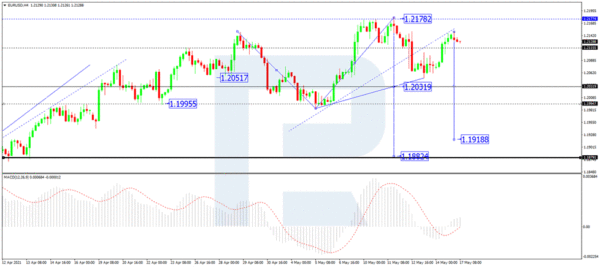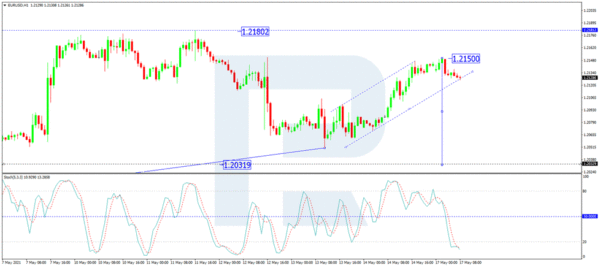On Monday, May 17th, the major currency pair reached stability after skyrocketing earlier and is currently trading at 1.2130.
The American statistics published last Friday were mostly disappointing and couldn’t help the “greenback”. For example, the Retail Sales in the USA showed a zero change in April after adding 10.7% m/m (a revised data) in the previous month and against the expected reading of 1.0% m/m. however, it’s quite logical because in March consumers received stimulus checks from the government, which immediately went right back into the country’s economy – it was an excellent although one-off tool to support the economic system.
In May or June, the Retail Sales may show another revival after the USA starts opening its borders and remove social restrictions. It will help Americans to spend more money.
The Industrial Production added 0.7% m/m in April after expanding by 2.4% m/m the month before. The Capacity Utilization Rate also improved. Both these reports managed to “smooth” the retail sales number a little bit.
In the H4 chart, after completing the ascending wave at 1.2150, EUR/USD is consolidating at its top. If the price breaks this range to the downside, the market may resume trading downwards to break 1.2030 and then continue falling with the short-term target at 1.1919. From the technical point of view, this scenario is confirmed by MACD Oscillator: its signal line is moving below and may later continue falling
 As we can see in the H1 chart, EUR/USD has reached the correctional target at 1.2150; right now, it is forming a new consolidation range below this level. Possibly, the pair may break the range to the downside and resume falling with the target at 1.2030. From the technical point of view, this scenario is confirmed by the Stochastic Oscillator: after reaching 20, its signal line is steadily growing towards 50. Later, the line may rebound and resume falling to return to 20.
As we can see in the H1 chart, EUR/USD has reached the correctional target at 1.2150; right now, it is forming a new consolidation range below this level. Possibly, the pair may break the range to the downside and resume falling with the target at 1.2030. From the technical point of view, this scenario is confirmed by the Stochastic Oscillator: after reaching 20, its signal line is steadily growing towards 50. Later, the line may rebound and resume falling to return to 20. 
